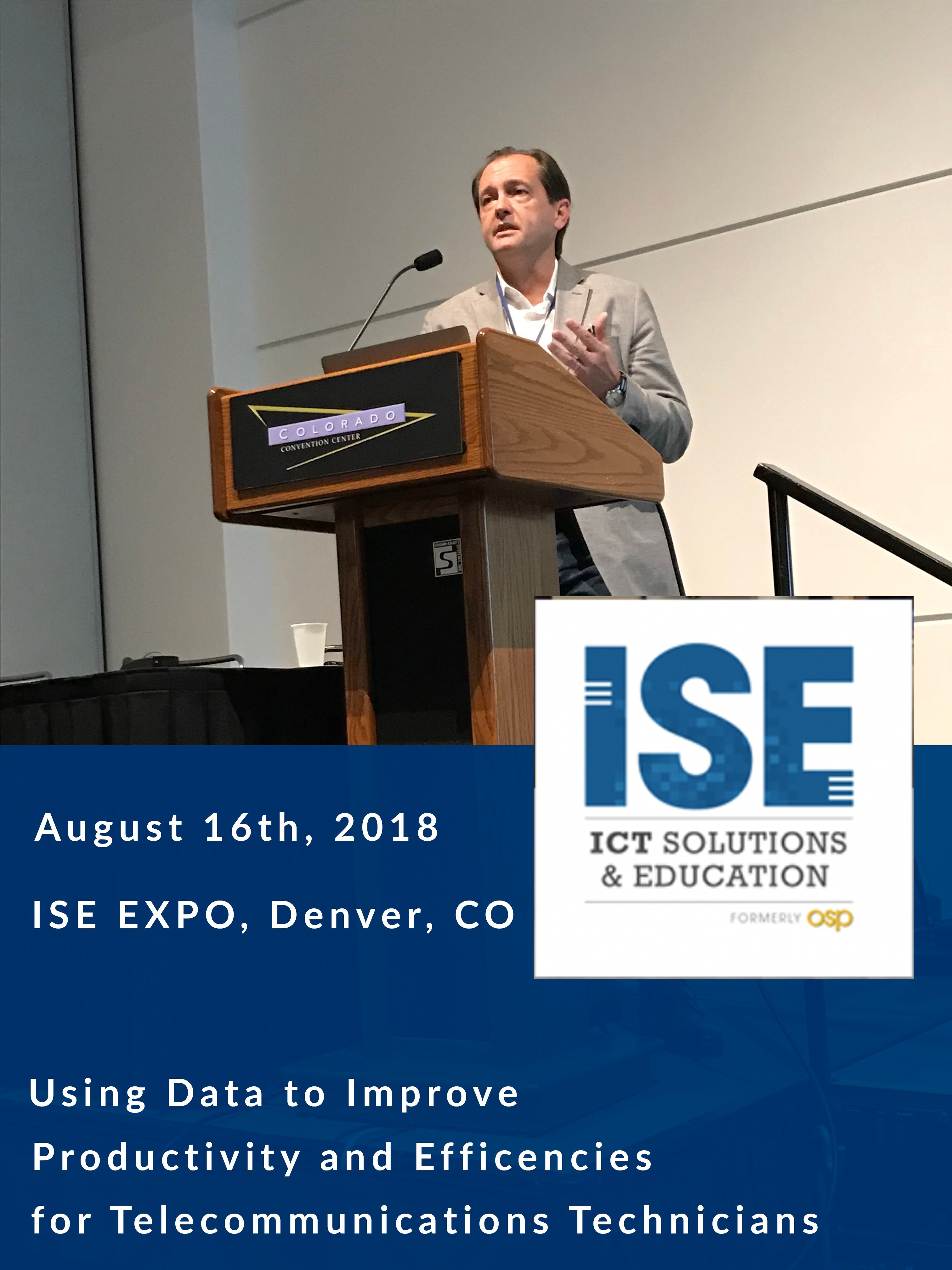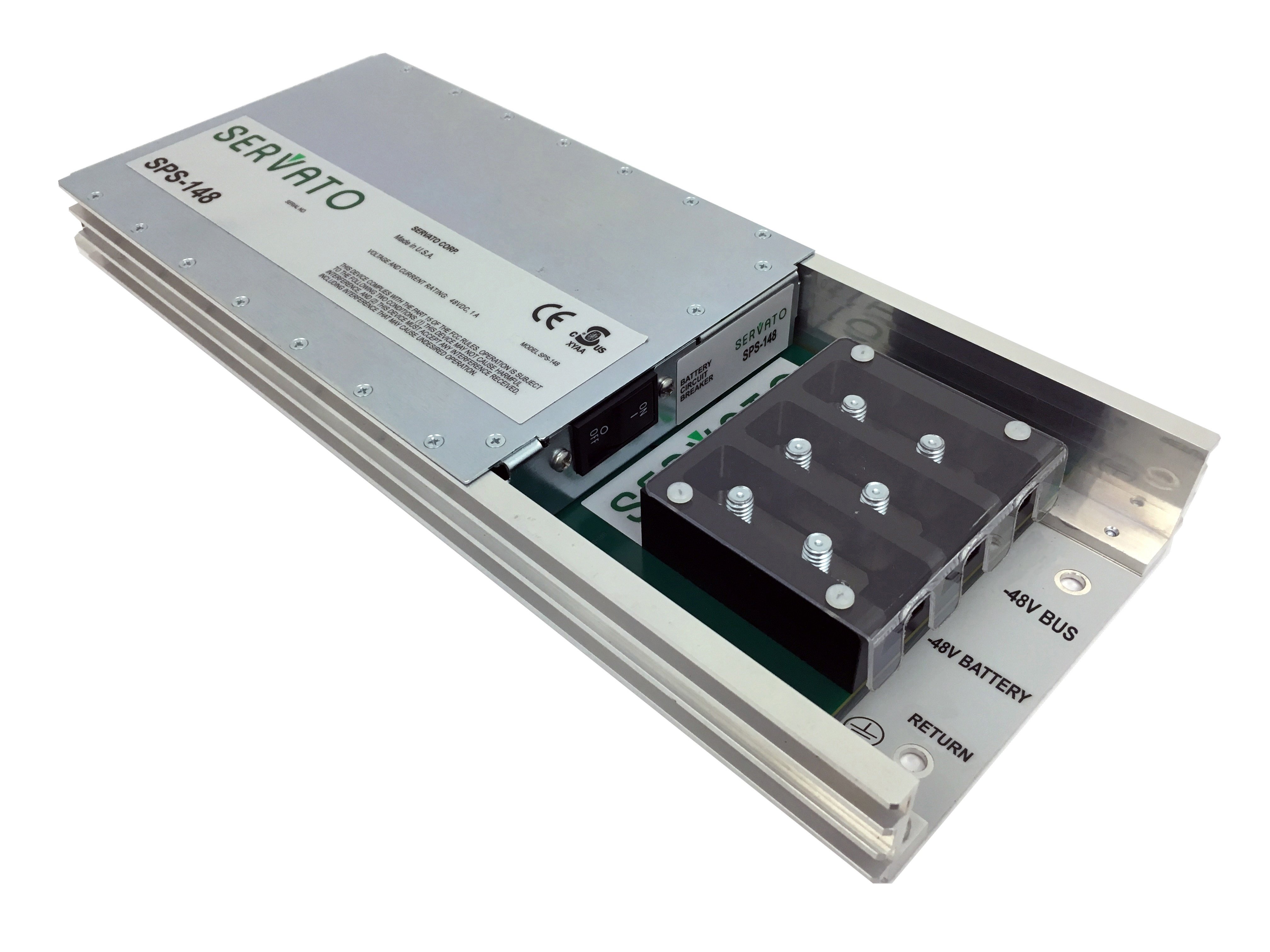The views of the panelists below are their views and their views only and do necessarily reflect the views of their employers.
At ISE Expo in San Antonio, Servato convened a panel of telecom experts to discuss how they approach the complex problem of backup power in their networks. The panelists included:
- John Greene: CEO of New Lisbon Telephone Company, a small service provider in East Central Indiana. John has 40 years of experience in the telecom industry.
- Daniel Jameson: Manager of Critical Systems and Infrastructure for TDS Telecom. Anything that’s concrete, lead, copper, power or battery related flows through his shop.
- Jim Caron: Engineering Manager, Maine, New Hampshire, Vermont at FairPoint Communications. Jim handles both CO and RT Engineering including all common systems. He has spent 28 years in the telecommunications industry all on the landline side.
- Curtis Ashton: Power Maintenance Engineer. Curtis handles power tech support and grounding tech support. Self-described “power puke” and “grounding opinionist.” Curtis has been involved with batteries since 1991 and today is on the BattCon committee and a member of the BattCon Hall of Fame.
The Search for Automated Remote Management Options
- Automation is coming to backup power.
- The industry has been waiting for the right technology.
The panelists agreed about a confluence of factors that are driving the need to automate maintenance, particularly the routine practice of manual battery testing. Throughout their long careers in telecom, all of the panelists have seen the futility of manually testing batteries widely distributed over broad geographic territories with a dwindling number of technicians who have other responsibilities to manage.
Caron noted that New England’s unique geography – from power plants on top of mountains to boat-access only sites – compounds the problem of manually testing batteries.
Several of the panelists had been seeking a solution to the problem for a number of years and had seen iterations of remote monitoring/management products. They were not satisfied until they were introduced to Servato.
Industry Trends are Changing the Nature of Backup Battery and Power Requirements
- Between potential FCC requirements, an aging industry and customer pressure, the importance of service reliablity is growing.
Backup power is not the same problem that it was ten or twenty years ago, and the panelists provided a number of reasons why.
First and foremost is the network transition away from copper towards wireless and DSL. Whereas pairs always had backup power from the CO, DSL may or may not have back up depending on the company. A new FCC order from last year requires battery backup for VoIP, which is where the FCC wants the network to transition. According to Ashton, “that order applies to the home, but by inference it applies to the whole line all the way back to the CO.” Shrinking electronics with higher loads multiply the power problem at each site.
Greene added that the industry is being hampered by a reduction in the number of two-year technical schools that are turning out telecommunications oriented graduates. He cited the biggest school in the Midwest area, Northwest Kansas Technical College in Goodland, had recently shut down its program. “It’s getting harder and harder to hire technicians that understand OSP, the ISP, and that are IP centric and that can go in and configure the equipment,” he added.
Coping with Backup Power Challenges
- Remote Monitoring/Management technologies have a huge impact, but there are other strategies as well.
- Telcos need a wide range of technology and behavioral changes to improve backup power.
The panel outlined a few methods that they currently use to cope with the challenges of backup power apart from new technologies and automation.
From a backhaul perspective, there is value in trying to work with tower operators and wireless companies that are already providing one set of batteries to the site. Rather than maintaining one set of batteries for the tower and another set for the backhaul, using the tower’s batteries can shift some of the cost to the wireless provider.
Line powering is another opportune method for improving reliability while reducing maintenance costs. Using the batteries at a single site to provide backup to several sites means that only one site needs to be visited and only one set of batteries needs to be replaced.
A trend that all of the panelists identified was a move towards a universal technician. Such technicians would approach their daily work with more general expertise rather than a specific focus. In theory, this should increase the ability of the workforce to react quickly and flexibly to field issues, including backup power problems. However, part of this trend is also because of the limited supply of power-trained technicians leading to the hiring of electrical engineering majors for a “universal technician.” Utilizing these technicians is not only more expensive, but there is a trade-off as these technicians have less depth in areas such as power management.
Justifying A Remote Management/Monitoring Product
- Sensors alone are not worth the investment.
- Remote mangement products need to bring some other value like Servato's advanced testing and battery life extension.
The panelists stressed the importance of cost as an essential factor in the decision-making process, but they offered different perspectives on how to find the right cost justification.
There are, they agreed, low-hanging fruit that make sense. Such sites include larger sites with many large backup batteries, particularly remote sites or sites that require additional costs or time to handle maintenance, and sites that are experiencing power problems on a regular basis.
“Do I believe that Servato’s technology works? Absolutely. I believe, and I’ll freely state this, it will approximately – and it took me a while to get here – but it will approximately double battery life.”
Beyond that, the panelists expressed varying opinions on how to weigh aspects of the Servato value proposition such as the battery life extension compared to the maintenance savings. Ashton stressed the battery life extension as the primary driver of ROI, while others weighted the operational benefits more significantly. For smaller telcos like NLTC, the consideration is not always a concrete business case with specific payback term expectations.
Overall, the business case does not have a silver bullet, but rather over a dozen ways in which Servato delivers savings from asset management to improved capital management.
Why Smart Rectifier Controllers Alone are Insufficient
- Servato goes above and beyond other automated monitoring.
As the leading battery expert on the panel, Ashton explained that controllers cannot test float current or internal impedence conductance – only voltage, which does not offer the same insight. Further, Servato has mastered adaptive charging in a way that others have failed.
That life extension through the adaptive charging compared to conventional float charging is just one differentiator. The panelists all agreed that Servato has provided a superior software interface for aggregating additional site information such as rectifier information and ambient temperature.
The Servato Difference
If you are interested in learning more about Servato's Active Battery Management Solutions for backup power in your network, you can download our solution overview here:
About Servato
Headquartered in New Orleans, LA, Servato is a leading provider of active battery management solutions to telecom, power, transportation, and solar companies. Servato’s solutions allow leading companies and infrastructure operators to reduce CapEx and OpEx by extending battery life, reducing maintenance costs and streamlining operations. Utilizing highly accurate data, proprietary algorithms, adaptive charging and cloud-based visualization software, Servato provides unprecedented insight and control over distributed DC power assets in industrial settings. To learn more, please visit: www.servatocorp.com











